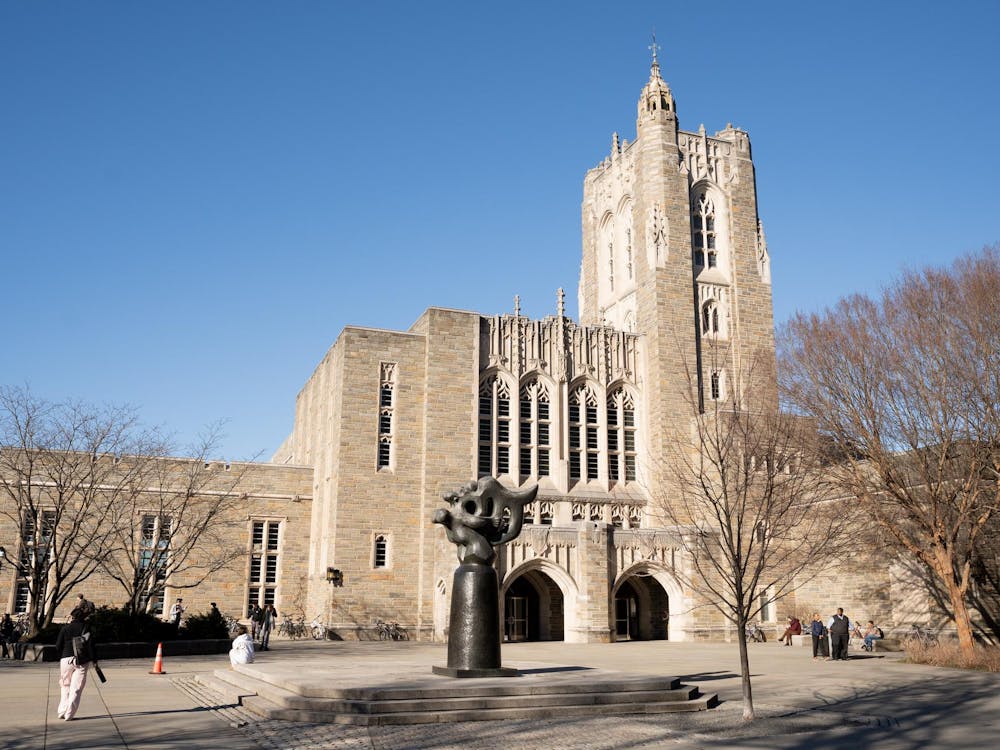Clarifying FLA's methods
I want to join Laura Kaplan '02 in inviting anyone interested in sweatshop labor issues to attend this afternoon's open forum sponsored by the Resources Committee of the U-Council. One of the purposes of the forum is to encourage discussion based on the facts. Without going into great detail, let me address some of the statements in Laura's column, "University's sweatshop labor policy 'FLA'wed," in the Feb. 15 'Prince.'
"The Fair Labor Association (FLA) certifies companies after initially inspecting 30 percent of their factories." The FLA requires companies to inspect 100 percent of their factories in accordance with FLA guidelines, involving local nongovernmental organizations in the process. It also requires independent external monitoring by accredited monitors — again involving local NGOs — of 30 percent of the factories prior to initial certification, with priority given to the factories with the largest number of workers or in areas where there is most likely to be abuse. The Workers' Rights Consortium, by contrast, doesn't propose any systematic monitoring. It doesn't require that even one factory of a licensee be monitored.
"After that, the FLA will inspect only five percent of company factories before recertifying them." The requirement actually is that between five and 15 percent of a company's factories be inspected each year by independent external monitors, using the same kind of priority ranking, with the FLA staff making the final choice of how many and which factories will be inspected. The WRC requires no annual inspection requirement.
"Companies will be able to predict monitors' visits and 'clean up' factories to conceal poor working conditions ahead of time." The FLA provides for a mix of announced and unannounced visits. Several university-sponsored pilot projects currently are assessing the respective benefits of both kinds of inspections. The risk that companies would clean up only for an inspection is one of the principal reasons that the FLA requires the participation of local NGOs in the monitoring process. These human rights, labor rights and religious groups will know about year-round conditions in the factories. NGO participation is so important that 22 schools, including Princeton, are sponsoring a year-long training program for NGOs in El Salvador, Costa Rica, Honduras and Taiwan. Other university-sponsored pilots with NGOs are under way in Mexico, Korea and India, and there are similar pilots in Guatemala and Indonesia. The FLA also has a third party complaint procedure to look into anything brought to the FLA's attention by anyone who may have information about particular factories.
"Termination of a company's certification involves a lengthy period of review and is dependent on the acquiescence of industry representatives to the FLA." The FLA board votes annually on whether to continue each company's certification. The decision is based on a majority vote of the 14-member board, six of whom are industry representatives. So clearly the termination of certification does not depend on the "acquiescence" of those representatives — not that it would be in their interest to certify companies that did not live up to the FLA's standards.
I don't think anyone involved with the FLA believes it is a finished product. Universities have already played a major role in strengthening it, and there is more to be done. Universities, including Princeton, have also encouraged much greater transparency in the collegiate licensing industry through their requirements of public disclosure of factory locations. The door is still open to additional complementary and supplementary measures. I look forward to discussing these and other possibilities later today. Robert K. Durkee '69 Vice President for Public Affairs







